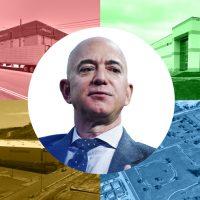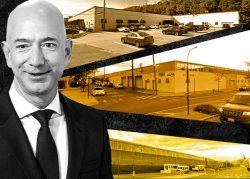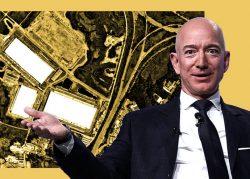How much capacity is too much?
For Amazon, the limit doesn’t exist. At least not yet.
The e-commerce giant — which has been adding warehouses at a dizzying clip across the nation — is on track to expand its fulfillment and transportation capacity by 50 percent, it said. The company has already spent $4.7 billion on property and equipment.
The Jeff Bezos-led behemoth reported another massive quarter on Thursday. Third quarter net income grew to $6.3 billion, tripling the $2.1 billion year-over-year. That bested the $5.2 billion second quarter net income, which itself broke a record.
Net sales similarly increased 37 percent to $96.1 billion in the third quarter, compared with $70 billion in Q3 2019 and $88.9 billion in the second quarter.
The company’s growth in fulfillment centers and delivery was originally planned for 2021, but was moved forward to satisfy demand prompted by Covid-19, the company said. Beyond the pandemic, the warehouse, logistics and last-mile center space is necessary to meet goals of one-day shipping. In the third quarter, the company opened 100 new “operations buildings” across North America, hired 100,000 permanent employees and is hiring another 100,000 seasonal employees.
“The logistics team is really good on, in one way, locking up long-term commitments on space and buildings,” CFO Brian Olsavsky said during Thursday’s earnings call. He added the team was also adept at being able to adjust the timeline in or out to match capacity and demand. We are erring on the side of having too much capacity.”
Amazon has signed a flurry of leases in the past month in New York alone. It inked three leases for delivery stations in Westchester County, along with the Bronx and Brooklyn. Earlier this month, it signed a giant lease for a 975,000-square-foot warehouse in Staten Island this week.
In India, Amazon is expanding its operations with 10 new fulfillment centers, five new sortation centers, and nearly 200 delivery stations.
In addition to acquiring more fulfillment centers, Amazon is building new wind and solar farms to produce a clean energy equivalent of the electricity used by all of its Echo devices. Its first wind farm is in Bäckhammar, Sweden.
Read more



